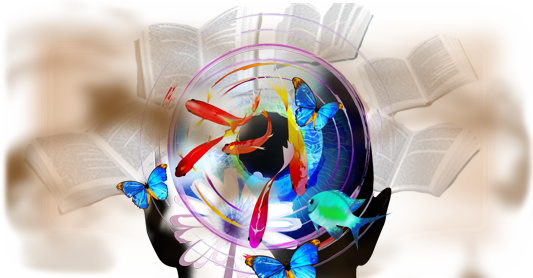Quiero compartir con todos vosotros un artículo que me ha
enviado una amiga de un columnista del New York Times y que me ha resultado muy interesante.
Este artículo nos habla de que se está dejando
de leer libros por la influencia de los medios sociales, cuando la lectura es
algo tan enriquecedor que llega a marcarnos toda nuestra vida, como al autor de
este artículo Charles M. Blow.
Me quedo con una frase que dice el autor del artículo, " Books to me were things most special. Magical. Ideas eternalized".
Artículo
The first thing I can remember buying for myself, aside from candy, of course, was not a toy. It was a book.
It was a religious picture book about Job from the Bible, bought at Kmart.
It was on one of the rare occasions when my mother had enough money to give my brothers and me each a few dollars so that we could buy whatever we wanted.
We all made a beeline for the toy aisle, but that path led through the section of greeting cards and books. As I raced past the children’s books, they stopped me. Books to me were things most special. Magical. Ideas eternalized.
Books were the things my brothers brought home from school before I was old enough to attend, the things that engrossed them late into the night as they did their homework. They were the things my mother brought home from her evening classes, which she attended after work, to earn her degree and teaching certificate.
Books, to me, were powerful and transformational.
So there, in the greeting card section of the store, I flipped through children’s books until I found the one that I wanted, the one about Job. I thought the book fascinating in part because it was a tale of hardship, to which I could closely relate, and in part because it contained the first drawing I’d even seen of God, who in those pages was a white man with a white beard and a long robe that looked like one of my mother’s nightgowns.
I picked up the book, held it close to my chest and walked proudly to the checkout. I never made it to the toy aisle.
That was the beginning of a lifelong journey in which books would shape and change me, making me who I was to become.
We couldn’t afford many books. We had a small collection. They were kept on a homemade, rough-hewn bookcase about three feet tall with three shelves. One shelf held the encyclopedia, a gift from our uncle, books that provided my brothers and me a chance to see the world without leaving home.
The other shelves held a hodgepodge of books, most of which were giveaways my mother picked when school librarians thinned their collections at the end of the year. I read what we had and cherished the days that our class at school was allowed to go to the library — a space I approached the way most people approach religious buildings — and the days when the bookmobile came to our school from the regional library.
It is no exaggeration to say that those books saved me: from a life of poverty, stress, depression and isolation.
James Baldwin, one of the authors who most spoke to my spirit, once put it this way:
“You think your pain and your heartbreak are unprecedented in the history of the world, but then you read. It was books that taught me that the things that tormented me the most were the very things that connected me with all the people who were alive, who had ever been alive.”
That is the inimitable power of literature, to give context and meaning to the trials and triumphs of living. That is why it was particularly distressing that The Atlantic’s Jordan Weissmann
pointed out Tuesday that:
“The Pew Research Center
reported last week that nearly a quarter of American adults had not read a single book in the past year. As in, they hadn’t cracked a paperback, fired up a Kindle, or even hit play on an audiobook while in the car. The number of non-book-readers has
nearly tripled since 1978.”
The details of the Pew report are quite interesting and somewhat counterintuitive. Among American adults, women were more likely to have read at least one book in the last 12 months than men. Blacks were more likely to have read a book than whites or Hispanics. People aged 18-29 were more likely to have read a book than those in any other age group. And there was little difference in readership among urban, suburban and rural population.
I understand that we are now inundated with information, and people’s reading habits have become fragmented to some degree by bite-size nuggets of text messages and social media, and that takes up much of the time that could otherwise be devoted to long-form reading. I get it. And I don’t take a troglodytic view of social media. I participate and enjoy it.
But reading texts is not the same as reading a text.
There is no intellectual equivalent to allowing oneself the time and space to get lost in another person’s mind, because in so doing we find ourselves.
Take it from me, the little boy walking to the Kmart checkout with the picture book pressed to his chest.















































